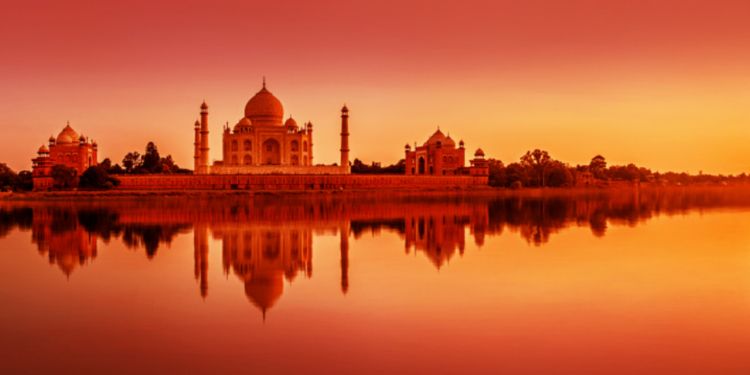
India has been a hub of diverse employment opportunities, attracting several expatriates from different parts of the world. The economy of India is quite diverse and a multitude of international companies have set up their branches in the country, thus widening job opportunities in the country. There are also multinationals headquartered in the country.
India's economy
India's Gross Domestic Product (GDP) amounted to US$ 3,202 trillion(nominal; 2020 est). The economy is dominated by the service sector (followed by industry and agriculture), which accounts for 55.6% of India's GDP. In terms of employment, the share of the service sector is higher in urban areas and minimal in rural regions.
Over the years, the country has witnessed the mushrooming of several other sectors, like information technology, agri-food, manufacturing and retail, that have also boosted the national economy. Moreover, the government has also come up with a series of reforms so as to further boost the economy.
Note that India hosts many international and multinational companies which are involved in different spheres of the economy. Hence, there are good chances that you will find a job quite easily.
Job prospects in India
There are various opportunities available for the educated and talented workforce. If you possess the desired qualifications and skills, you are likely to be hired in the following fields: information and communication technology, telecommunication, energy, petrochemicals, water treatment, engineering, hospitality, healthcare, pharmaceuticals, infrastructure etc..
Textiles and fashion industries have also emerged as promising sectors especially in major cities. Moreover, local and foreign, small and medium enterprises are playing a vital role in offering jobs options to Indians and foreign nationals.
Young degree holders with a minimum of two years of work experience in their respective fields are more likely to be hired as India already has a wide pool of qualified youngsters. Good command of English is necessary for most positions.
Working conditions in India
Contract
To be allowed to work in India, you must have an employment contract which must specify the basic working conditions, such as compensation, annual leave Generally employment contracts have a fixed term, but can be renewed with the consent of both the parties.
In case of termination of contract, managerial staff are provided with one to three months' notice.
Wages
Every state has a set of minimum salary that the employer is required to pay to his employee. This salary slab varies according to the nature of work which falls under three categories: unskilled, semi-skilled and skilled. Note that generally, the average salary offered is relatively lower in India as compared to other countries. However, the salaries are revised every semester according to the inflation rate.
Moreover, there are provisions of extra payment in case of extra hours of work. Your contract of employment should include details of overtime pay rates and how they are to be worked out.
Working hours
The number of legal working hours generally varies from one sector to another. However, the standard working hour in most cases ranges from 8 to 9 hours, that is 48 to 54 hours a week. Moreover, the legal working week consists of 6 days. The working time has been made more flexible for women. A woman employee cannot be forced to work before 6 am and after 7 pm.
Leaves and Holidays
Numbers of leaves entitlement in a company depends mainly upon the state you are in. Every state has different leave entitlement and leave policies which should be seen before one defines leave policy of your company. However, the leave policy of a company cannot be less than that mentioned by the State's shop and establishment act.
Generally, it is a standard rule that on completion of at least 240 days within the same company, you will be entitled to 20 days paid leaves per annum. In some fields, employees are entitled to 21 days paid leaves.
In India, you will get to enjoy several public holidays every year. The total number of holidays granted will, however, differ from state to state and also according to the lunar calendar. Some of the regular public holidays that every company is bound to give include New Year (January 1st), the Republic Day (January 26th ), Independence Day (August 15th), Gandhi Jayanti (October 2nd), etc.
Retirement
The retirement age in India has been fixed at 60 years.
Useful link :
We do our best to provide accurate and up to date information. However, if you have noticed any inaccuracies in this article, please let us know in the comments section below.







Comments